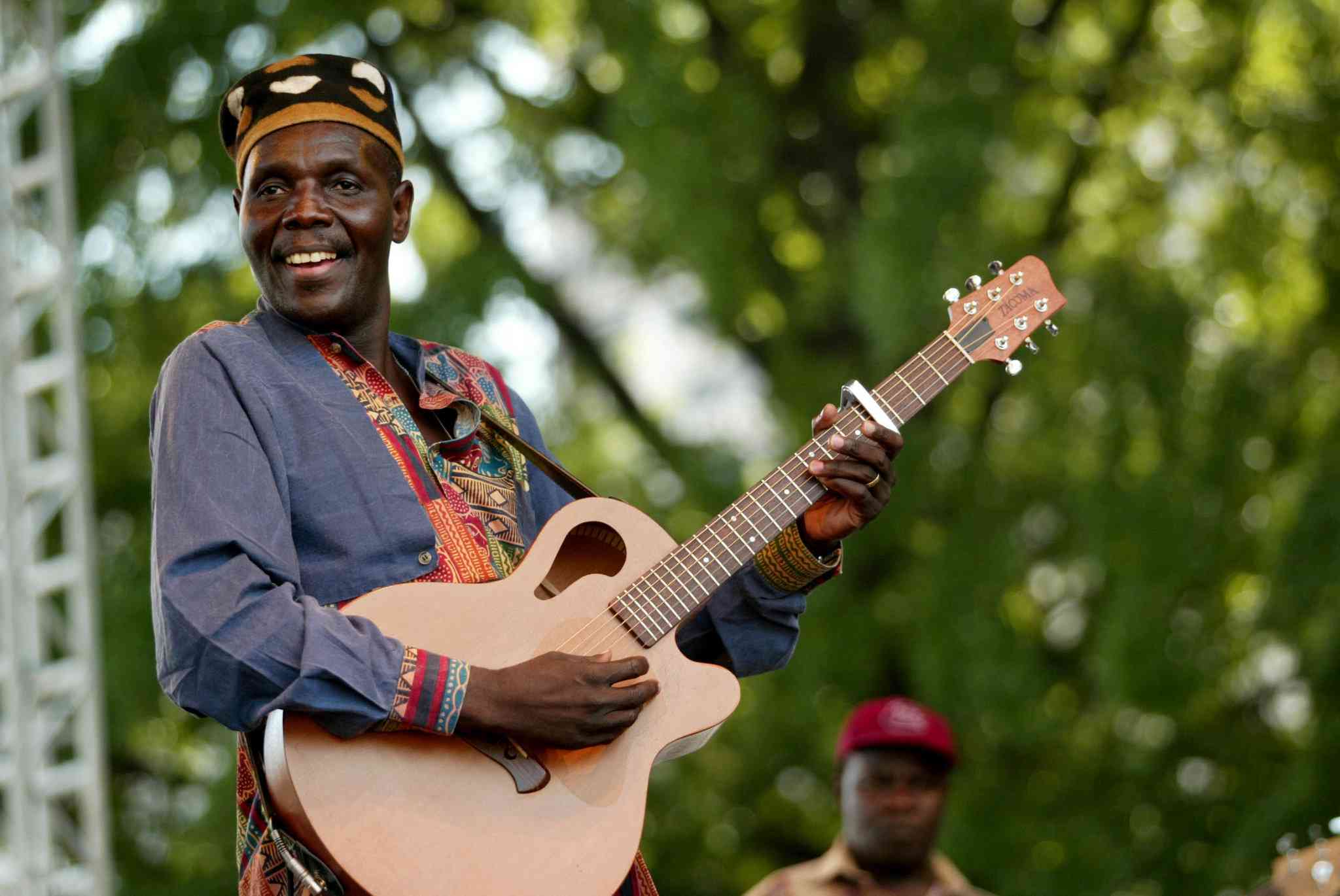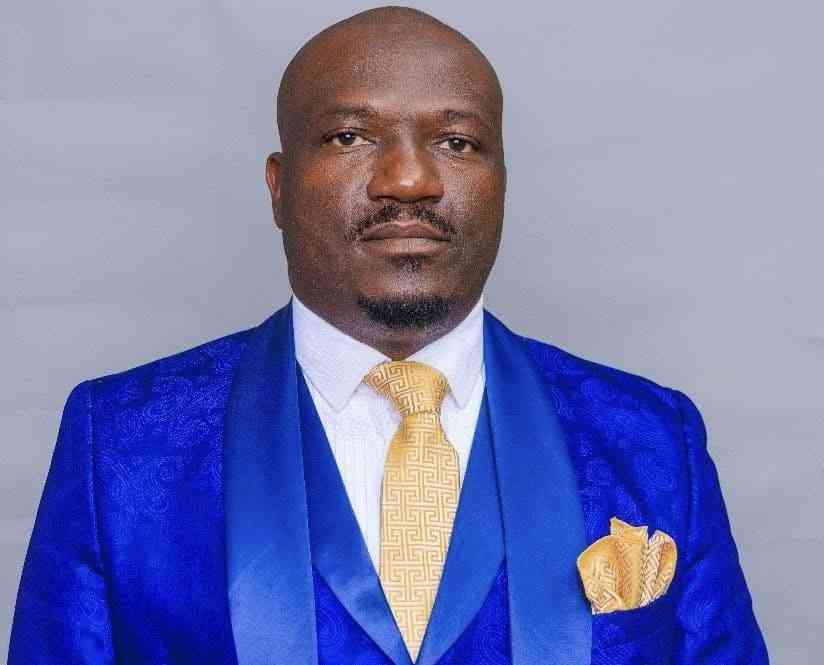
Imagine listening to a new Oliver Mtukudzi album with his voice recorded and released this year in 2023.
You know that Tuku died four years ago. You begin to wonder how all this came about. Modern technology which uses artificial intelligence (AI) is able to do this.
The process is simple. The producer of this record will allow Tuku’s old musicians such as The Black Spirits to record the backing tracks and also allow any singer (Let’s call him Singer A) to lay the vocals on the new album.
Before mixing the songs, the producer will sample Tuku’s voice from his previous albums, then allows the computer to sing in unison with the current singer A, using Tuku’s sampled voice before erasing Singer A’s voice and replacing it with Tuku’s sampled original voice, but keeping the song alive. That’s it! Magic! And the new Tuku album is out using his original voice.
The fans are made to believe that it is Tuku singing on the new album. Perhaps recorded before he died? They wonder! (Why not? After all it is Tuku’s voice on the new album) Listeners and Tuku fans also begin to wonder whether he, like Jesus Christ, has risen from the dead.
That is technology for you. The entire process only takes a few seconds, and consumers are not required to have any prior knowledge. The albums will be pressed and distributed to the shops as usual or the pirates will be out vending them on the streets.
Today, artificial intelligence (AI) has several uses in music that make it possible to quickly (and without any musical training) produce music that closely resembles music made by humans.
One doesn’t have to know how to play a music instrument in order to create music as long as they know how to manipulate the computer to do so.
- Public relations: How artificial intelligence is changing the face of PR
- Queen Lozikeyi singer preaches peace
- Public relations: How artificial intelligence is changing the face of PR
- Business opinion: Branding through Artificial Intelligence
Keep Reading
The question is: Who owns the copyright to this music? If a computer programme generates a creative work — be it a song, book or other creation — is there a copyright to be owned? If so, who owns and gets to collect on the copyright? In the above example, Tuku died four years ago. So who collects the royalties from the new album sales? It becomes complex. Even his family knows that it couldn’t have been Tuku singing although the voice on the album sounds exactly like Tuku’s. In fact it is Tuku’s voice created by a computer programme referred to as Artificial Intelligence.
Ngai Zhang of law firm Pillsbury Winthrop Shaw Pittman. answers this question this way:
“Although purely mechanised or random processes such as those executed by computers are excluded from copyright protection, a work might still be copyrightable if, for example, a person provided the creative intervention that produced the work,” wrote Zhang.
If this was as easy as Zhang puts it, all musicians’ families could collect royalties for the continued use of their dead relatives’ songs.
However, it’s not that simple. There is still a process to prove the authenticity of the original singer’s voice, which has been generated by the computer. If the case is taken to court, one needs to prove that the original singer’s voice was infringed upon.
Jukedeck is a website that lets people use artificial intelligence to generate original, royalty-free music for use in videos. The team started building the music generation technology in 2010, formed a company around it in 2012, and launched the website publicly in 2015. The technology used was originally a rule-based algorithmic composition system, which was later replaced with artificial neural networks. The website was used to create over 1 million pieces of music,
However, works created by a human using software on a computer are protectable under copyright law. Copyright protection may be possible for AI-generated works if the creator or his management team or relatives can prove substantial human input.
The data that AI systems rely upon to create new content is often protected by copyright, which means that the copyright owner's rights are necessarily infringed because they are copied by the act of teaching the AI software.
Research on artificial intelligence (AI) is recognised to have impacted various sectors.
Unfortunately, the application of AI in music writing is a topic that receives little attention. It can sound like science fiction, but it’s more evolved and real than you might imagine.
The combination of artificial intelligence and music (AIM) has long been a popular topic in several workshops, conferences, and research initiatives.
In recent years, I have followed the advancement of Artificial Intelligence in the music market. Streaming services use and abuse this feature to indicate new songs and build playlists for their users. It is even considered the greatest value they offer, rather than the vast collections they have, as many believe.
The value is in the curation, and the machine is of great help when analysing the huge volume of data.
The use of AI in music composition, performance, theory, and digital sound processing are all now being researched, and many music software packages have been created that do the same.
This makes it easy even for non- musicians who are computer literate to create their own music.
This, in reality, is nothing new. The Jamaicans, including some who were not musicians, kicked off this technology by creating ‘riddims’ for various artistes.
This was to make instant music and avoiding expensive studio time. Artistes would come and just select the riddim they liked, then create musical lyrics around it.
Today, in Zimbabwe, Chillspot Records in Harare for instance, are known for this kind of innovation. They have not gone as far as imitating other artistes’ voices as yet, but I am sure that sooner or later they will do so as soon as they master the technology. In no time at all artistes will begin to sound the same. This is something we should all be concerned about as AI can be allowed to destroy real raw talent.
It is becoming increasingly obvious that artificial intelligence will quickly replace traditional music-making techniques. Depending on how it is applied and who the ultimate user is, AI can be viewed as a tool or a supporter of the artist.
In this instance, AI replicates a mental task just like it does in other fields. The ability of the AI algorithm to learn from experience is a standout characteristic. For instance, computer tracking technology may listen to and follow a human artist so that it can perform in unison.
The so-called interactive composition technique, in which a computer creates music in reaction to a live musician’s performance, is also powered by artificial intelligence.
The interactive composition technique can change anyonés voice and replace it with someone else’s even in a live performance as long as the computer is instructed to translate the singing voice to an already programmed one. Simple.
Other AI applications for music exist that deal with marketing and consumer behaviour in addition to music composition, production, and performance.
In this post, I’ll talk about the current situation and look into how AI seems to have a promising future in the field of music production.
Artificial intelligence (AI) application to the process of generating music raises several possibilities and concerns regarding the process of making music and the artist’s place in this new era.
Artificial intelligence (AI) is quickly becoming a standard tool for making music, contributing to the music industry’s infrastructure, collaborating, and offering technology to everyone who wants to make music, whether they are musicians or not. AI ignores the musician’s natural talent but concentrates on what the computer can do.
On the other hand, the support that artificial intelligence can give artistes when analysing the market and consumer tastes is invaluable.
AI can bring valuable information to producers and songwriters when deciding which paths to take in search of the new hit that will “break the internet.”
No doubt, there has been rapid innovation in digital technologies in the past ten years. Some of them have particularly disrupted the music business at every level.
Technology has changed how people create music. Composers can produce film scores from their home studios. Musicians can play for fans around the world through livestreamed performances. Songwriters can record albums and release them on digital distribution and streaming platforms without ever landing or signing a record deal. There are some songwriters who, through the use of AI, have the ability to imitate the voices of successful artistes using AI without effort.
For the music professional, the ins and outs of modern music business and music technologies is must-have knowledge.
Feedback: frezindi@gmail.com










